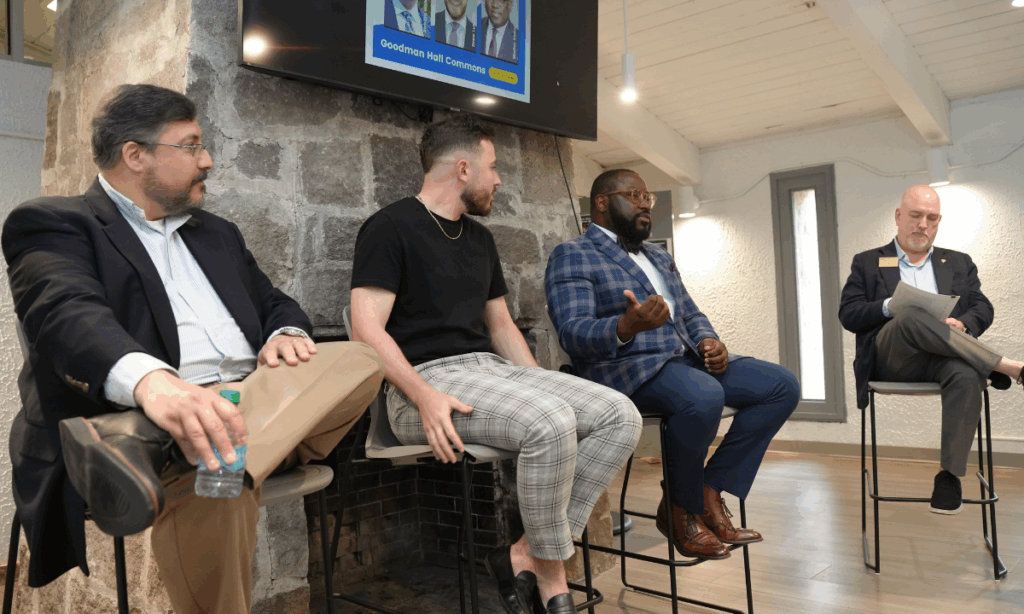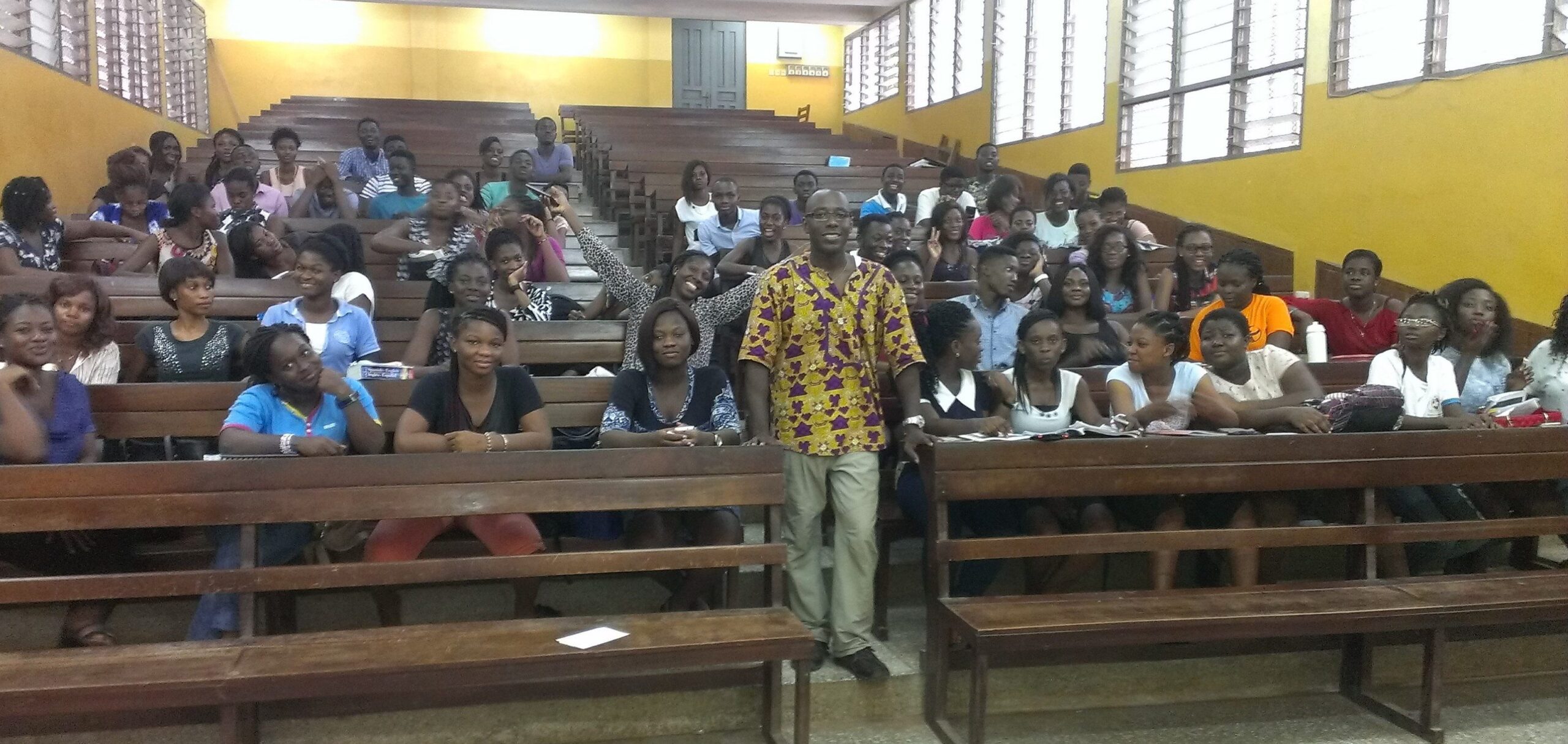
I arrived in Accra, the capital of the West African nation of Ghana, on the evening of the last day of January 2016 to embark upon the second sabbatical of my tenure as a professor at Oglethorpe. Why on earth would a Spanish professor spend an entire semester in an English-speaking African country? What would be the point? What is the connection between Africa and the disciplines of Spanish language and Hispanic cultures?
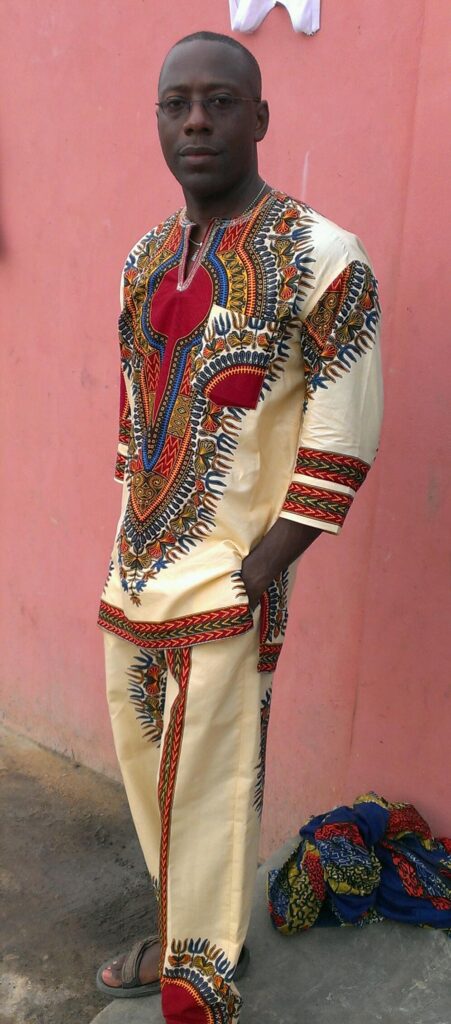
First off, Ghana is an English-speaking country flanked to the west, north, and east by Francophone neighbors Ivory Coast, Burkina Faso, and Togo, creating a context of familiarity in Ghana with the Romance languages (French, Spanish, Portuguese, etc.). On any given day, in almost any place throughout Ghana’s bustling capital (especially in the markets and commercial centers), it is nearly impossible not to hear someone communicating in French. African countries in general are extraordinarily multilingual to begin with, and the borders between Ghana and its French-speaking neighbors specifically are quite porous. Ghana’s borders (Africa’s borders no less), drawn arbitrarily by European powers during the colonial period, today have various ethnic groups shared between and across them, making multilingualism, not only a logical reality, but in many cases, a daily necessity. Undoubtedly, the multilingual context of Ghana’s landscape would be quite fascinating and attractive to a foreign language professor or student.
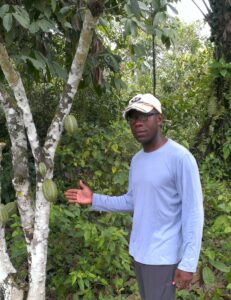
Second—and here’s the Spanish connection—there is strong interest in Spanish and Hispanic studies at the University of Ghana, not only because students have sought a Romance-language option apart from the ubiquitous and traditional French studies mainstay, but also because, quite global savvy, Ghanaian students are well aware of the importance of Spanish on the international stage. For example, as Equatorial Guinea (Africa’s only Spanish-speaking nation) enjoys a prosperous oil boom, the word is out that this Central African Hispanic nation is open for business and in need of Spanish-speaking professional and skilled workers, as well as laborers of all skill sets. Ghana is supplying a notable portion of Equatorial Guinea’s labor need. The migration of Ghanaians to Equatorial Guinea today is a fascinating topic in and of itself, echoing a link between the two countries that began with the Ghanaian agriculturalist, Tetteh Quarshie’s visit in 1870 to Spanish Guinea (Spain’s colonial name for Equatorial Guinea). It was in the Spanish colony that Quarshie witnessed the growth of an unusual (and for him new) agricultural product that did not exist in his native country of Ghana: cocoa. Quarshie returned to his home in Ghana’s Eastern Region in 1876 with cocoa beans, which he planted, and in turn, began a West African chocolate revolution that continues in Ghana until this very day. Ghana is one of Africa’s top producers of high-quality chocolate.
For a Spanish professor with an abiding love for Africa and a fascination with linguistic diversity that defines, in fact, daily life on the African continent (not to mention a penchant for exotic chocolates), the acceptance of an invitation to spend my sabbatical in Ghana at its flagship institution, The University of Ghana (UG), working with talented graduate and undergraduate students of Spanish in a vibrant campus environment, was a no-brainer.
“To pave the way for OU students and colleagues to experience a taste of the enriching and transformative experiences that I have enjoyed in Ghana would be a noble goal well worth striving for.”
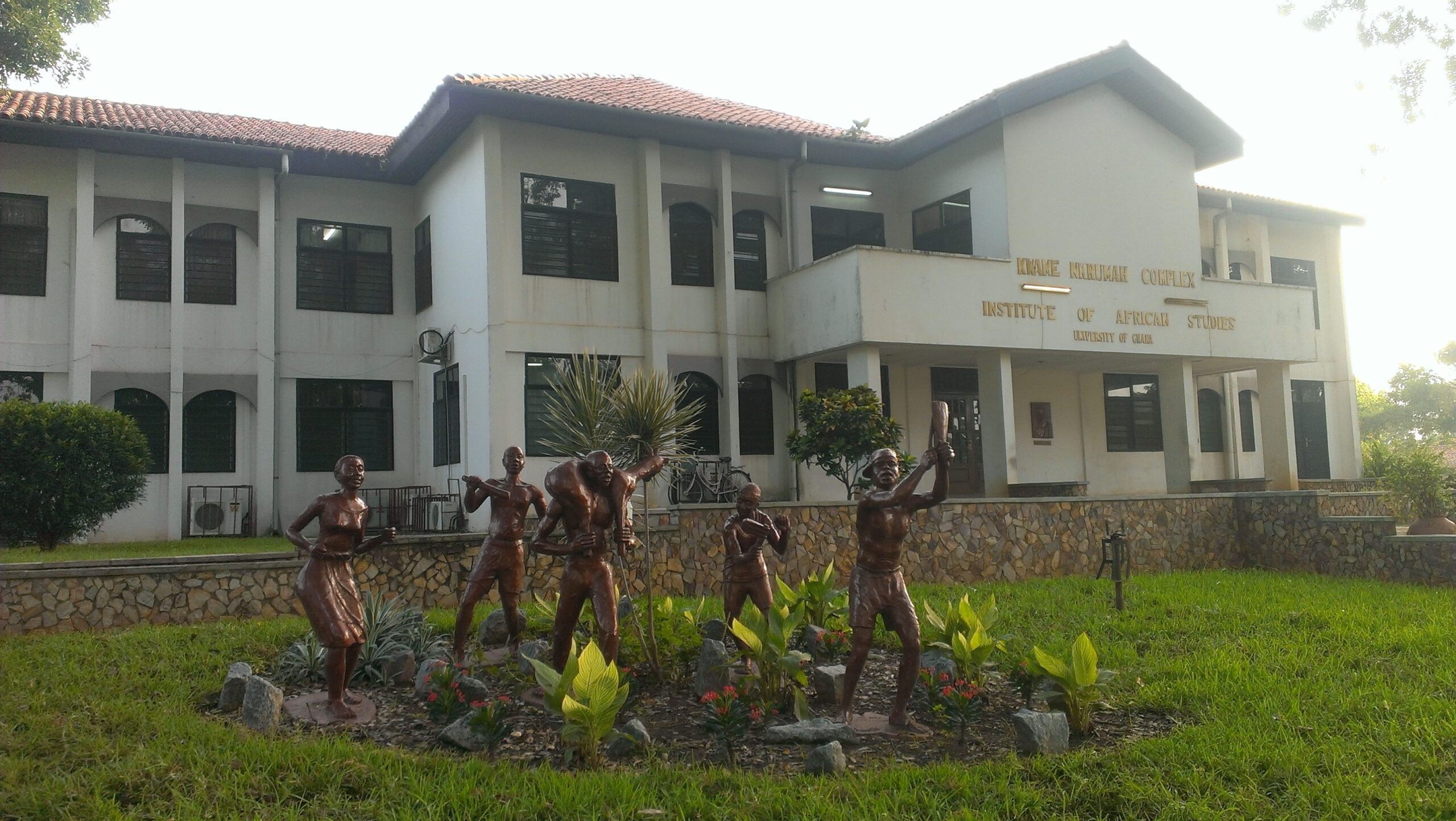
 Immediately upon my arrival at UG, it was clear to see that one of the most popular student organizations on the entire campus is the Club Hispánico, which just ended its annual “Semana de la hispanidad” (Hispanic Week). It was my honor both to witness, as well as participate in, this wonderful week of films and academic lectures focused on the Spanish-speaking world. The degree of dedication and commitment to Spanish language and Hispanic cultures at UG may seem out of place in Africa, but my sabbatical experience confirms the very thing that I teach and stress in my Spanish classroom at Oglethorpe: that for abundant cultural and historical reasons, Africa and the Spanish-speaking world share in common many connections that deserved to be both recognized and studied.
Immediately upon my arrival at UG, it was clear to see that one of the most popular student organizations on the entire campus is the Club Hispánico, which just ended its annual “Semana de la hispanidad” (Hispanic Week). It was my honor both to witness, as well as participate in, this wonderful week of films and academic lectures focused on the Spanish-speaking world. The degree of dedication and commitment to Spanish language and Hispanic cultures at UG may seem out of place in Africa, but my sabbatical experience confirms the very thing that I teach and stress in my Spanish classroom at Oglethorpe: that for abundant cultural and historical reasons, Africa and the Spanish-speaking world share in common many connections that deserved to be both recognized and studied.
During my time here in Ghana, the exciting news of a possible African-American/Africana Studies Program at Oglethorpe reached my ears. I am optimistic that future students of such a program will not only expand as much as possible their conceived boundaries of the African diaspora, but also look to Africa for enriching short-term and long-term study abroad opportunities. To that end, one important additional objective on my sabbatical checklist has been to begin the conversation about OU study abroad possibilities in Africa…and perhaps help put something viable in place here in Ghana before my departure.
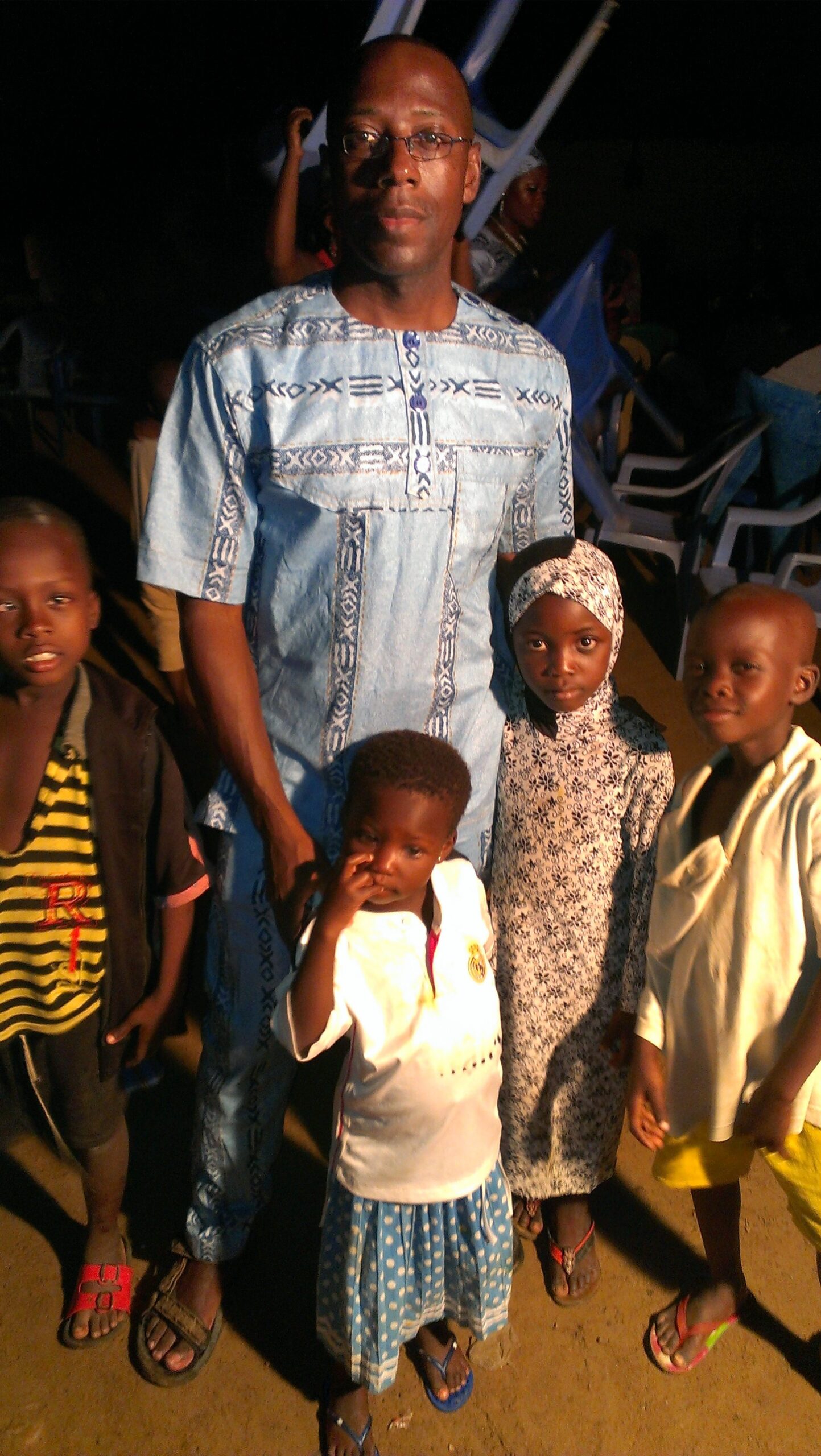 My African sabbatical has been nothing less than extraordinary. Making the transition from life at Oglethorpe to campus life—as well as village life since I spend a significant amount of time in rural Ghana as well—in a developing West African country has come with its fair share of admitted challenges. Transportation, while inexpensive, does not operate on predictable schedules. Electrical blackouts are fairly common throughout the country, and WiFi and internet, while present in some places, are sporadic and spotty. And yet, these inconveniences are mitigated by a country of good-natured people that make them bearable.
My African sabbatical has been nothing less than extraordinary. Making the transition from life at Oglethorpe to campus life—as well as village life since I spend a significant amount of time in rural Ghana as well—in a developing West African country has come with its fair share of admitted challenges. Transportation, while inexpensive, does not operate on predictable schedules. Electrical blackouts are fairly common throughout the country, and WiFi and internet, while present in some places, are sporadic and spotty. And yet, these inconveniences are mitigated by a country of good-natured people that make them bearable.
Indeed, life in Africa, I have learned, is all about managing day-to-day challenges with a healthy dose of patience and humor. What is also clear to me is that while the creature comforts that I take for granted at home are wonderful, doing without them has taught me many important lessons about myself and about what really matters most in the learning enterprise. To pave the way for OU students and colleagues to experience a taste of the enriching and transformative experiences that I have enjoyed in Ghana would be a noble goal well worth striving for.

